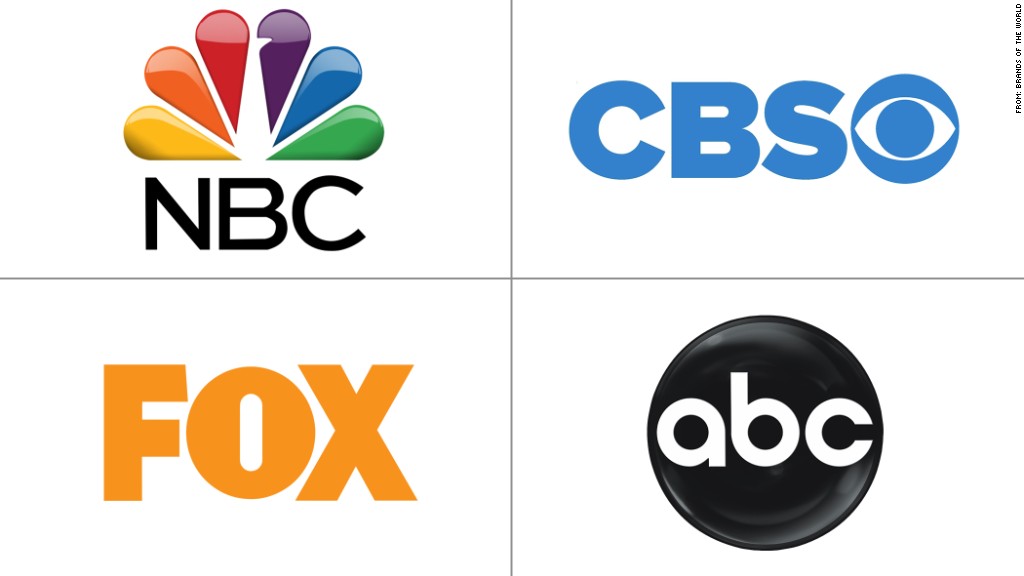
As the nation's broadcast television networks introduce their new shows this week, imagine a dramedy about the business. Call it "Yes...But." (The laughs come from the perilous situations the characters find themselves stuck in.)
Yes, the broadcasters continue the draw the biggest crowds ... but the size of those crowds is dwindling due to competition from cable channels and the Internet.
Yes, most TV shows are still seen live, according to the schedule set by the networks ... but more and more time-shifting is taking place every year.
Yes, the broadcasters had their own buzzworthy shows like "House of Cards" and "Orange is the New Black" long before Netflix (NFLX) did ... but now there's a serious case of what TV Guide recently termed "Netflix envy."
But while a show like "Yes, But" would probably not last long before getting canceled, there are signs that the network bosses are trying to adapt to the digital age of TV.
Watch for these following story-lines during the industry's "upfront week" extravaganza.
More money for way-delayed watching: The "upfronts" are an annual spring ritual where companies make advance commitments to buy ad time on TV shows. This is worth billions of dollars to the top networks. Last year, ABC, CBS, Fox, NBC and the CW made somewhere between $8.6 billion and $9.2 billion in the upfront, according to estimates by the entertainment trade magazine Variety.
To know how many people see the ads, the advertisers and networks use a Nielsen rating called "C3," which counts all views of a commercial within three days of its live airing. (The advertiser is not paying for views of the TV show -- they're paying for views of the commercial within the show.)
Network executives, most notably CBS (CBS) CEO Leslie Moonves, want "C3" to be superseded by something known as "C7," so that, as the name of the rating implies, seven days of views are counted. Some advertisers are reluctant. They say that last Thursday's ad for a movie is much less valuable the following Tuesday.
But the advertisers and networks need to do something. On-demand viewing continues to become more and more popular. "More and more deals are and will be done in C7," Moonves told investors earlier this month.

Of course, the networks don't want people to watch with digital video recorders -- they would much prefer that people watch via cable video-on-demand (VOD) systems or the Web, where commercials can't be skipped. On VOD and online, networks are getting smarter about swapping old ads for new ones after a few days.
"The bottom line is that advances in measurement are catching up with how people are watching our content," Moonves said. "And as a result, we're in the early stages of realizing a whole new source of incremental revenue."
Adding ads: What's another way to make up for modest ratings declines? By showing more ads to the people who are still watching.
A Nielsen study released Monday morning found that the average cost of a 30-second spot in prime time (on broadcast and cable) has dropped about 12 percent in the past five years. Not coincidentally, the average amount of time devoted to ads has risen -- from 13 minutes and 25 seconds per hour five years ago, to 14 minutes and 15 seconds per hour, on the broadcast side.
The broadcasters will keep looking for ways to increase ad quality and quantity. Their more nimble rivals on cable will, too: on Monday Adult Swim announced that it's going to let advertisers occasionally replace the channel's logo in the corner of the screen with an ad. (Adult Swim, like CNNMoney, is owned by Time Warner (TWX).)
Sports rules: CBS typically shows off its fall schedule on Wednesday of upfront week, after Comcast (CMCSA)--owned NBC and Fox (FOXA) on Monday and Disney's (DIS) ABC on Tuesday. But everyone already knows what CBS will feature on Thursdays in the fall: "Thursday Night Football." The network announced a deal to broadcast NFL games back in February.
Related: NBC nails Olympics rights through 2032
Sports rights are more important than ever. The match-ups bring big audiences, and some of them stick around for dramas, sitcoms and reality shows afterward. NBC has "Sunday Night Football," ESPN has "Monday Night Football," CBS and Fox are also the main partners for the bulk of NFL games that air Sunday afternoons.
Not a network, a "collection of shows:" It used to be that new episodes of TV shows aired only between September and May. But that's changing. Fox's pre-upfront press release touted both its fall schedule and a "new portfolio of content."
A new drama or comedy can become a hit in so many different ways now, and at so many different times. So the broadcasters are taking the idea of year-round programming more seriously with each passing year.
"June is just as important as January," Fox Broadcasting entertainment chairman Kevin Reilly told reporters Monday morning.
Reilly and some of his rivals are taking more risks and learning from cable. And they are commissioning more miniseries and special events. NBC said Monday that it has a live version of "The Music Man" in the works -- the network had a hit last December with a live performance of "The Sound of Music."
And Fox said it will recreate Evel Knievel's attempt to jump across Snake River Canyon in a special called "Jump of the Century."
All that said, the networks will still do what they always do. They'll introduce too many new shows in September and October. So let the betting about the first cancellation begin.

